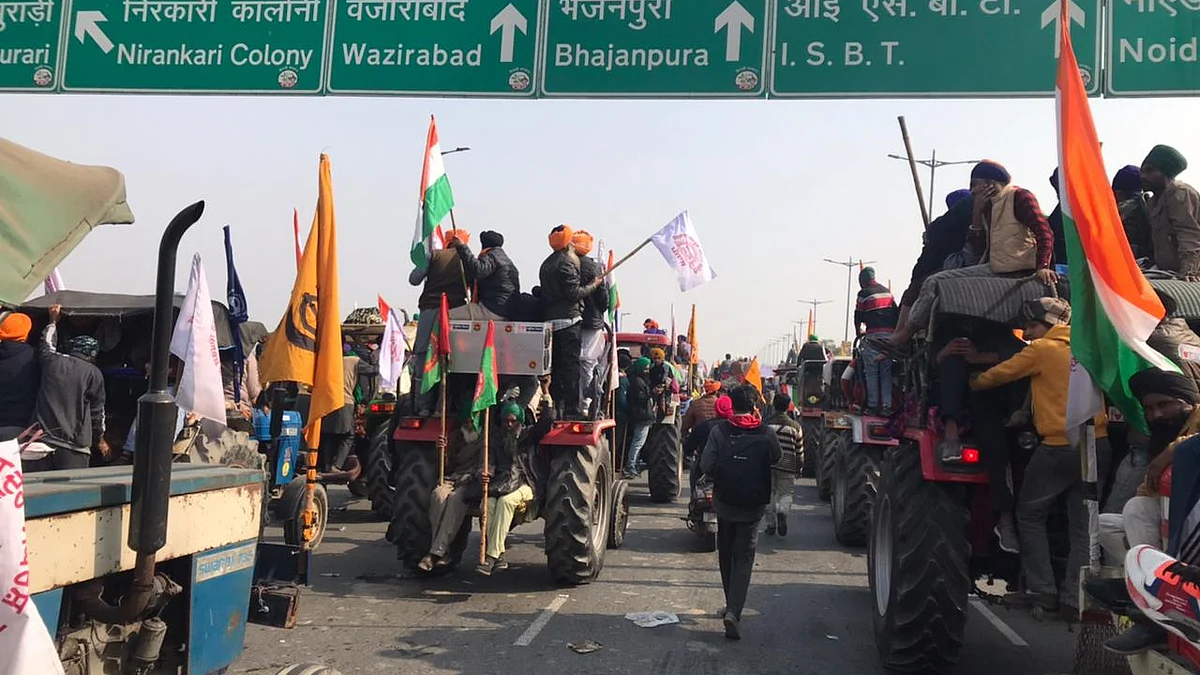It is now for Parliament and the SC-appointed committee to end the stalemate on farm laws
It remains to be seen whether the experts chosen by Supreme Court and the deliberations in parliament will be able to allay the fears of farmers about a corporate takeover of their lands and produce

The BJP probably thought that the Republic Day mayhem by groups of rowdy and irresponsible farmers in the national capital marked the end of their two-month-long agitation against the three farm laws. The party must have been heartened, therefore, when some of the farmers started leaving their protest sites to return home. To hasten their departure, the electricity and water connections were switched off.
Not only that, bands of purported “locals” began attacking the farmers on the plea that the normal activities of the affected localities had been disrupted by the prolonged demonstrations. The identity of some of the attackers could be gauged, however, from their slogan, “desh ke gaddaron ko, goli maro saalon ko” (shoot the traitorous b ….. ds), which has become the BJP’s latest war cry along with “Jai Shri Ram”. The slogan was the logical culmination of the earlier castigation of the protesters as Khalistanis.
But this offensive appears to have proved the party’s and the government’s Achilles heel, for it has clearly energized the farmers who had become demoralized after the January 26 faux pas. Large numbers of them have begun returning to the protest sites, falsifying the claims of the pro-BJP media that the agitators are not farmers at all but middlemen and commission agents. It is obvious that the setback which the movement had suffered has been partly overcome and that the farmers are ready to continue with their agitation in spite of the inconveniences caused by the cutting off of the Internet in their areas of congregation.
The reason for the BJP’s miscalculation is understandable. After crossing the 300-seat mark in the Lok Sabha in 2019, the party had convinced itself that everything was now going for it. While a palpably weak opposition was unable to offer a credible challenge, the BJP had succeeded in gathering under its wings parties like the Biju Janata Dal, the YSR Congress and a few others (which are outside the National Democratic Alliance) to push through the Hindutva Parivar’s legislative agenda.
The ease with which the party could dispense with Kashmir’s special status and ensure the passage of the citizenship laws apparently whetted its appetite for more. The party came to the conclusion that there was no one with the will and the ability to stand in its way. True, it was being criticized by the Left and Liberal intelligentsia at home and abroad, but the party and the government thought nothing of ignoring them with the external affairs minister, S. Jaishankar, even refusing to meet a Congresswoman in the US, Pramilla Jaypal, who had been critical of the government’s Kashmir policy. It was an unprecedented display of arrogance.
The ramming through of the three farm laws without a detailed discussion in parliament or being examined by a standing committee was yet another example of this haughty attitude. But the balloon of this hauteur has now been deflated. The government has not only agreed to keep the laws in abeyance for a year and a half, but has also said that it is only a phone call way from resuming the stalled dialogue.
With the government on the back foot, the farmers will obviously have to play their cards carefully. Otherwise, they will throw away all their gains as they nearly did by not realizing the damaging fallout on the movement from the entry of hundreds of tractors into the national capital on January 26 as a show of strength. They did not understand at the time that thousands of young people could not be allowed to run riot when their leaders did not have total control.
Now that there is a kind of a stalemate between the farmers and the government with little chance of a breakthrough, the next step will have to be an initiative on the practical and intellectual front. Two courses are open. One is a positive outcome from the decision of the panel set up by the Supreme Court to examine the dispute, and the other is for parliament to take up the matter again. Eighteen months – the time during which the laws will remain in cold storage - should be enough for either of the two initiatives to bear fruit.
It remains to be seen whether the experts chosen by the Supreme Court and the deliberations in parliament will be able to allay the fears of the farmers about a corporate takeover of their lands and produce. Since the farmers are insisting on a total retreat by the government, they are unlikely to be pacified by a mere fine-tuning of the laws. At the same time, it will be a loss of face for the BJP to turn its back on what it considers much needed agricultural reforms.
A great deal depends on how the party fares in the forthcoming assembly elections in Assam, West Bengal and Tamil Nadu, especially in the last two states. If it stumbles, a step back on the farm laws is possible. If not, the party will stick to its guns.
Views expressed in the article are personal
(IPA Service)
Follow us on: Facebook, Twitter, Google News, Instagram
Join our official telegram channel (@nationalherald) and stay updated with the latest headlines